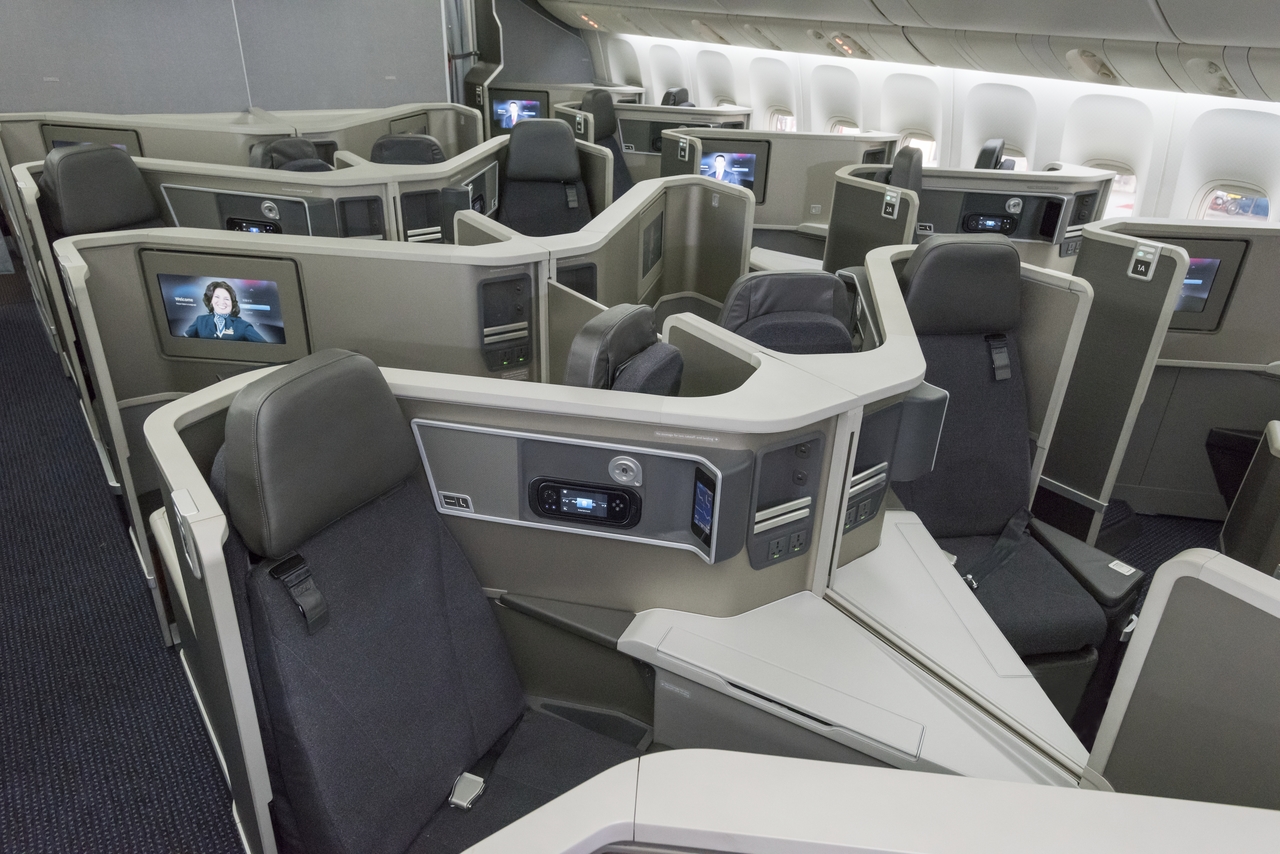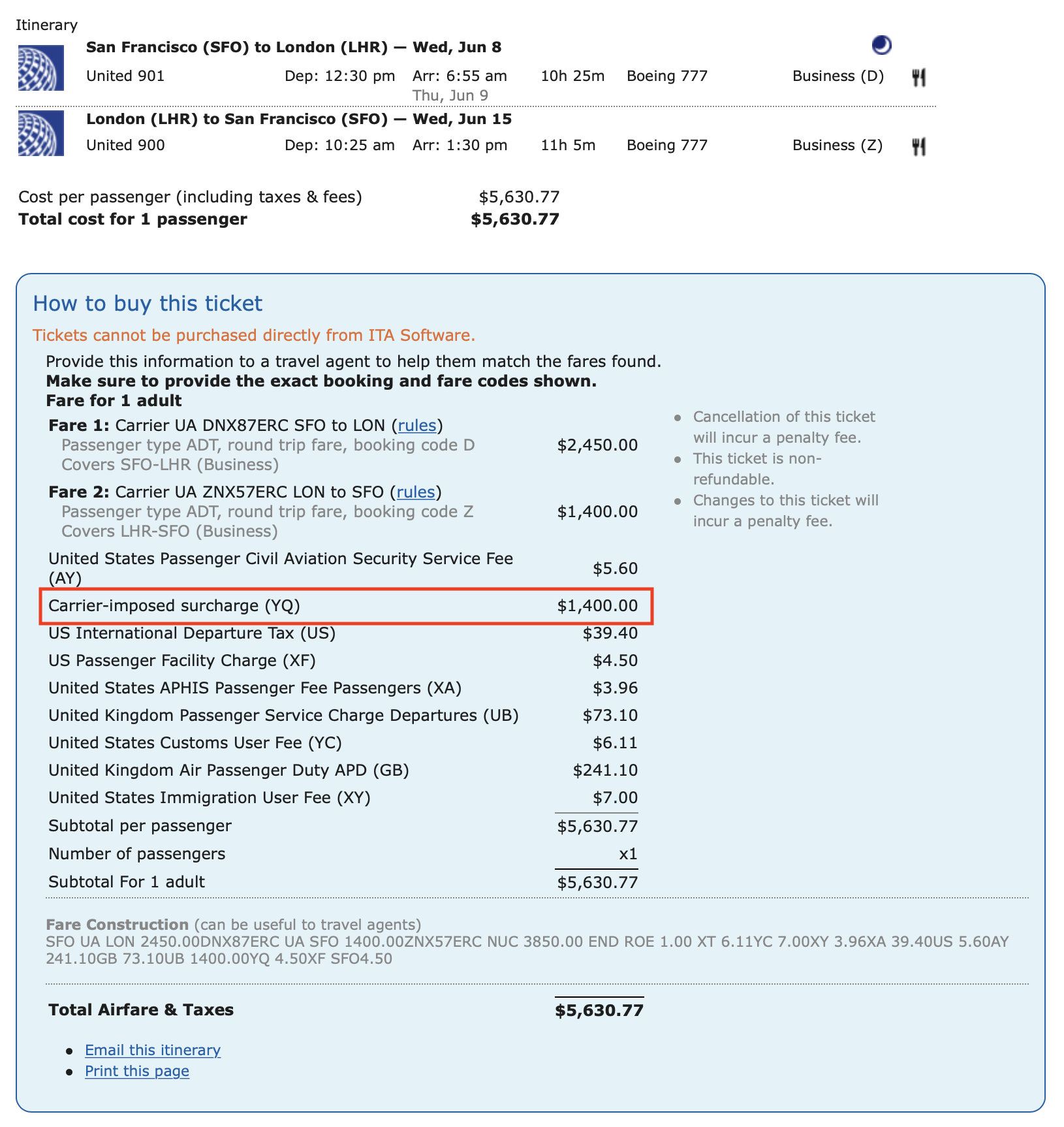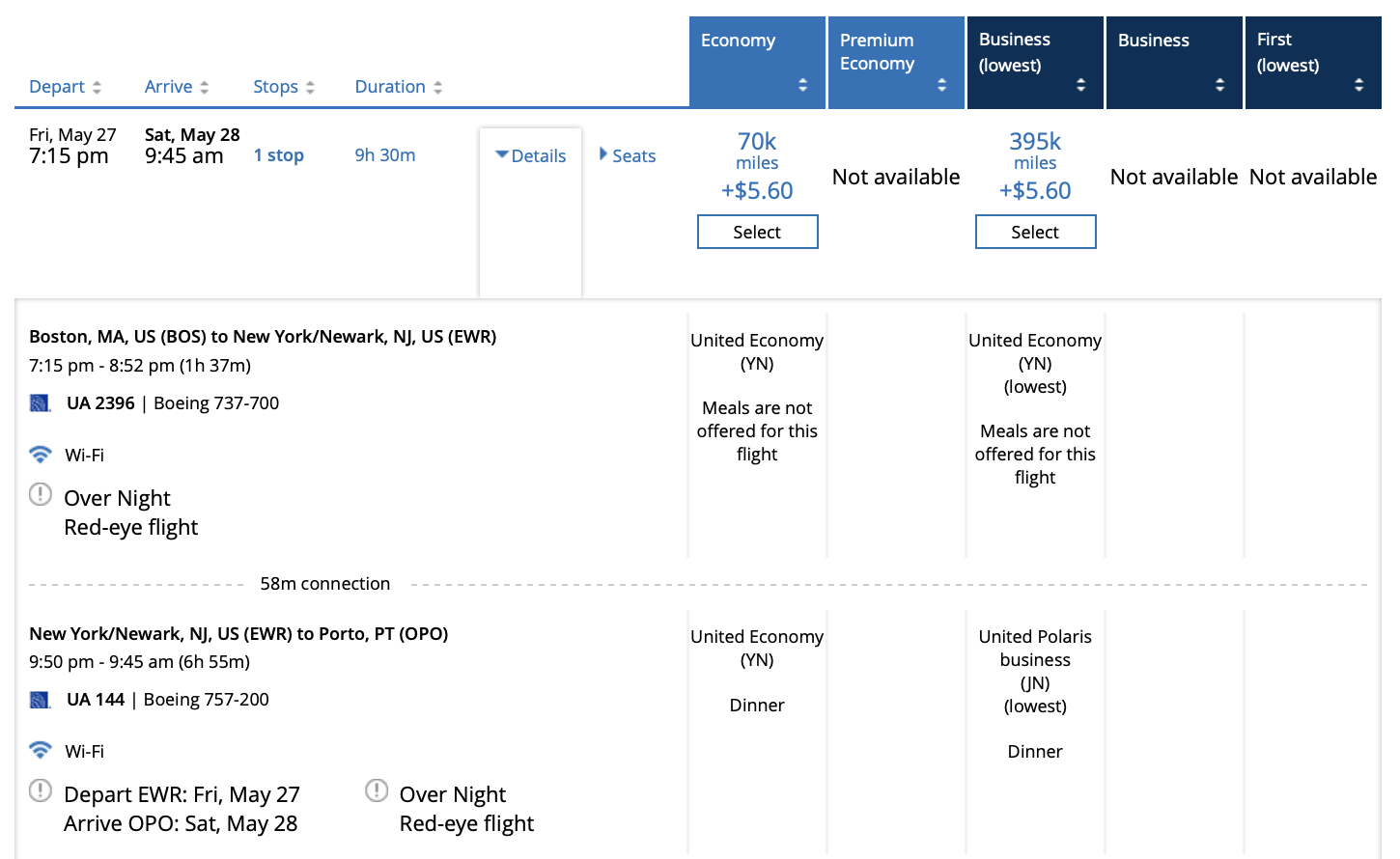
Let me put it this way: if they can get away with it, U.S. airlines will certainly tack on fuel surcharges to award redemptions. But it likely won’t be in same manner as British Airways and Emirates.
Facing Higher Oil Prices, Will U.S. Carriers Adds Fuel Surcharges To Award Redemptions?
Even as oil retreats below $100/barrel, U.S. carriers are warning that higher fuel prices will impact ticket prices in the weeks ahead. Delta CEO Ed Bastian told the Financial Times that there is “no question” higher fuel prices will lead to higher ticket prices. Importantly, he added that Delta will add fuel surcharges to international flights “as the market conditions permit.” United and American have also linked higher ticket prices to rising fuel prices.
With fuel prices at a multi-year high, we’ve seen Emirates greatly increase fuel surcharges on award redemptions in recent days. For example, last month the taxes/fees on a one-way business class award from Los Angeles to Dubai were $181.20. Today, that same award will cost you $611.20.
While Emirates’ greatly-increased fees are not proportionate to the rise in fuel prices, it marks a trend in which I expect we’ll see higher out-of-pocket fees on Air France, British Airways, KLM, Virgin Atlantic, and Turkish Airlines.
As for U.S. carriers, I cannot imagine they would introduce outright fuel surcharge (officially called carrier-imposed surcharges) on award travel. Consumers have grown accustomed to paying a mileage plus government taxes and the addition of fuel surcharges on award tickets would be met with mass revolt against the legacy airlines’ largest customers: credit card companies.
Take a look at the fuel surcharge on a United ticket from San Francisco to London in June:

While the $1,400 YQ allows United to offer more attractive base fares, adding such a fee to award tickets (as Lufthansa Group carriers already do) is simply unacceptable to most passengers.
But that doesn’t mean U.S. airlines won’t pass on fuel expenses to consumers. Instead, we will see that in the form of higher mileage prices. I’m frankly shocked at how high awards have been pricing lately. Sticking to United, awards that used to max out at 155K and be reality available are now running 395K one-way. It’s crazy.

Look for this trend to continue. Fees will remain limited to government taxes, but mileage prices will continue to skyrocket.
In that sense, particularly with more flexible change polices, if you see space for summer or autumn travel, grab it immediately–you can always improve upon it later.
CONCLUSION
I don’t expect U.S. carriers to add cash fuel surcharges to award redemptions. However, I do expect mileage prices for awards on American, Delta, and United will continue to rise…we are already seeing that and it will only continue. Practically, this is “six of one, half a dozen of the other” approach to award travel. Some will be happy to pay lower fees and more miles while others will wish they could pay more cash to conserve their miles. Either way, expect award tickets to rise in price. And if you are considering an award on carriers like British Airways or Emirates or Lufthansa using their own programs, book now before surcharges rises again.
image: American Airlines




“Dear Customer, your in-store play-money is now worth (original value – x)! We appreciate your unwavering loyalty and look forward to serving you again. Book a flight with us today!”
I am against fuel surcharge if it’s not in the total price of the ticket. For award tickets, a small fuel surcharge is ok with me but the airlines are too aggressive. A fuel surcharge should be for sharply higher prices that were not forecasted by the average person. It would be in the $10-45 range and would be lifted after oil prices stabilize.
Given their hedging contracts, as fuel comes down but contracts at higher prices come due, will the surcharges remain?
The issue with this is as each airline implements them, they keep them for long after prices go down. People get used to them and barely notice. British Airways is a perfect example that has enjoyed milking it out for some time beyond any need.
The worst though are cargo companies. They will squeeze this forever until enough people start yelling, long after prices go down.
In the end, as we see prices fall already amidst the great panic of $10 a gallon predictions, is that it’s all a myth. These oil companies have plenty to meet demand. It’s nothing but a scam to make the public imagine otherwise. And as more alternative energy sources emerge they are going to scream louder that they have to raise prices. BS. This is not the 1970’s and 80’s. Oil companies globally verge on criminal. Period.
Lack of competition to pressure. The willingness to just pass it on to consumers who have no choice. When is everyone going to wake up?